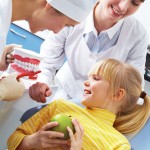
This review of current management strategies for adult patients with dental anxiety in the dental clinic included 54 studies. Most of the psychotherapeutic behavioural strategies provided some benefits but there was limited supporting evidence for some approaches. Pharmocological approaches were not included.
[read the full story...]



